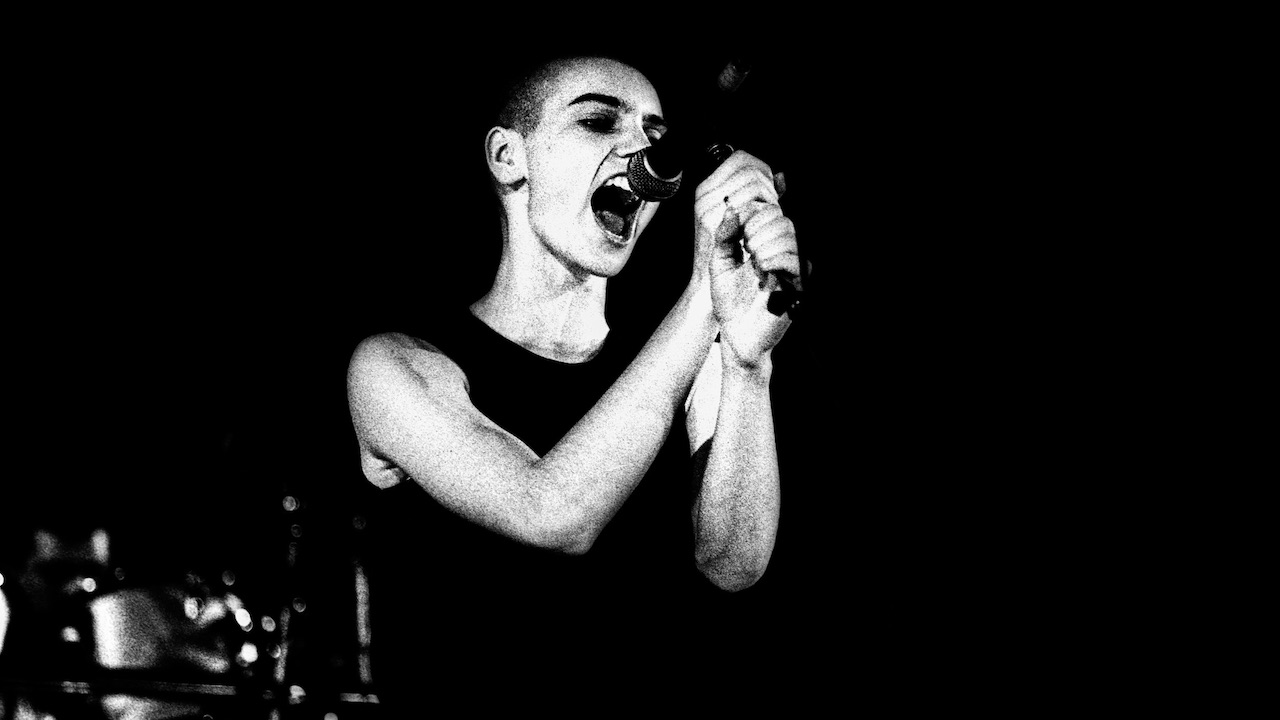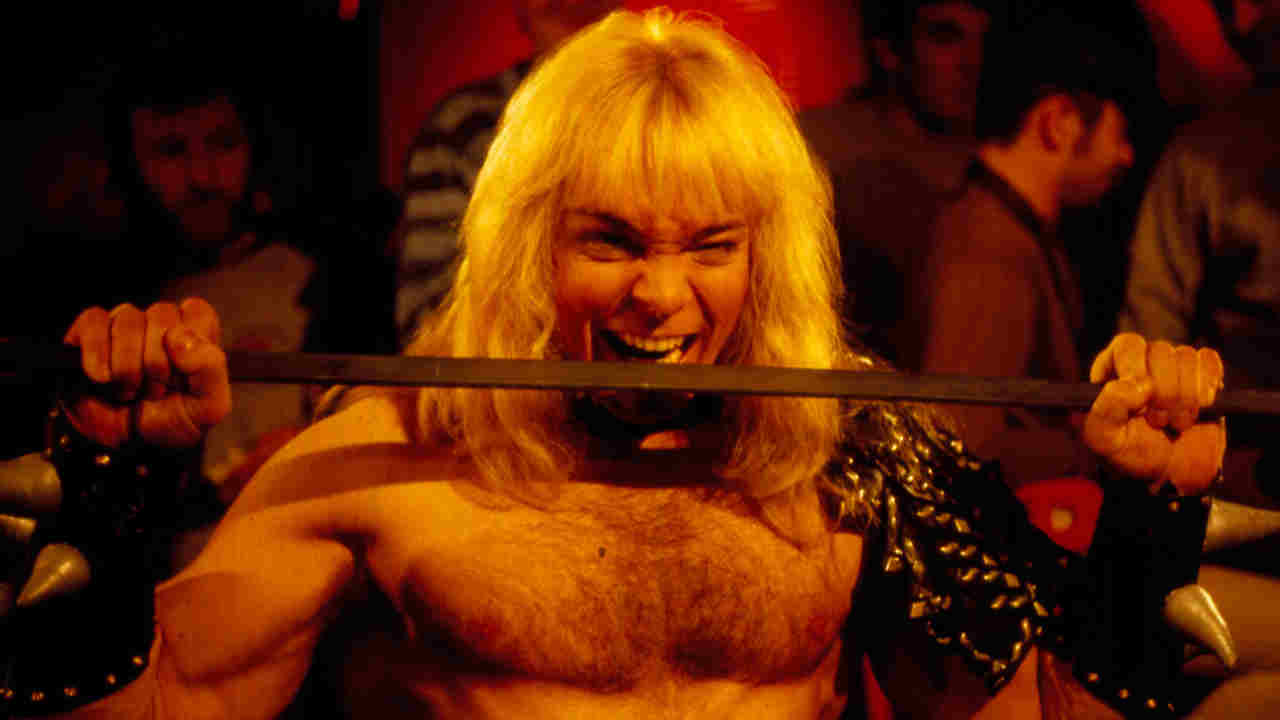“The world is full of cowards. You see cowards a lot when you’re doing something that’s honest, because you remind people of their own dishonesty.” Remembering Sinéad O'Connor, one year on
Celebrating the life, music and spirit of the fearless Sinéad O'Connor

In the spring of 1988, as Sinéad O'Connor's debut album The Lion and the Cobra climbed into the Top 40 of the Billboard 200 chart, the singer's US record company, Chrysalis, felt that celebrations were in order. Nigel Grainge, the owner of O'Connor's UK label Ensign, had told Chrysalis' president that he should expect something in the region of 25,000 sales for the record in America but, in just six months, it had already passed the 200,000 sales mark, no mean feat for an a collection largely ignored by radio.
In recognition of the fact that more and more people were becoming fans of the young Irish singer, some bright spark in Chrysalis' promotions and marketing division, decided it would be a hilarious gimmick to send radio stations and music magazines promo postcards featuring doctored images of celebrities without any hair, and to send out a photo of record label staff wearing (white) skin-coloured skull caps for publication in music industry magazine Billboard. O'Connor wasn't amused.
“It makes me think that my record company are assholes,” she told a journalist, revealing that she went into the label's office afterwards and “went fucking mad.”
When the story was recounted in Musician magazine in June '88, Nigel Grainge expressed sympathy with his friends at the US label.
“She’s not the easiest person to get along with," he told the magazine, adding, as if this were a negative personality trait, “She’s very much her own person.”
That comment said a lot more about Grainge, and the music industry's ingrained sexism, than it did about O'Connor. In the same interview, the label boss admitted that he and the singer “had quite a lot of disagreements over her getting pregnant” before the release of the album, which had led to “a lot of personal acrimony.” What he didn't mention, but O'Connor later did, both in her 2021 memoir Rememberings, and in Nothing Compares, Irish film-maker Kathryn Ferguson 2022's documentary film about her career, was that he had phoned a doctor to “impress upon her” that, for the sake of her career, it would be best for her and everyone else if she had an abortion.
“Your record company has spent £100,000 recording your album,” the singer recalled the doctor telling her. “You owe it to them not to have this baby.”
Though this discussion wasn't disclosed in 1988, in his interview with Musician magazine, Grainge did publicly express his 'concerns' about the singer's ability to follow-up the success of her debut record.
“Right now her life isn’t her own,” he stated. “If she goes into a nervous situation where she can’t make it [a second LP] happen, there could be problems.”
Amid the world-wide outpouring of grief and elegiac tributes which followed in the wake of O'Connor's death, aged 56, on July 26 last year, one stood out, both for its obvious sincerity, and for the uncomfortable truths it contained.
“There is a certain music industry hatred for singers who don’t ‘fit in’... and they are never praised until death - when, finally, they can’t answer back,” Morrissey, former frontman with The Smiths, wrote. “She was a challenge, and she couldn’t be boxed-up, and she had the courage to speak when everyone else stayed safely silent. She was harassed simply for being herself. Her eyes finally closed in search of a soul she could call her own.”
When O'Connor delivered the tapes of her second album, I Do Not Want What I Haven't Got, to her record label(s), there was widespread dismay. The singer was told that the songs were “too personal”, too introspective, too imbued with pain... and that if they were to release it, it would be "a complete flop.”
“They said people wouldn’t understand it and it wouldn’t be a success and it would sit in the warehouse,” the singer told Musician magazine in August 1990. "And I knew that they were wrong, and I told them at the time that they were wrong.”
They were very, very wrong. In the second week of January 1990, O'Connor introduced her second album, and a new decade, with a sensational, superlative version of Prince's Nothing Compares 2 U, originally an unheralded deep cut on his band The Family's sole studio album, released in 1985. Recovering from a break-up, O'Connor made the song her own - crying real tears in the video - and the world felt her pain: the song spent four weeks at the top of the UK and US singles charts, and went on to sell 3.5 million copies before the year was out. When the singer met the song's writer, Prince congratulated her on her success, but told her off for her repeated swearing in interviews.
“I don’t work for you,” O'Connor replied. “If you don’t like it, you can fuck yourself.”
Hearing I Do Not Want What I Haven't Got for the first time, it was impossible not to be moved, indeed awed, by O'Connor's own raw, emotional and unfiltered songwriting. Opening with a solemn recital of The Serenity Prayer ("God, grant me the serenity to accept the things I cannot change, the courage to change the things I can, and the wisdom to know the difference"), the album largely deals with heartbreak, betrayal and pain - O'Connor laying herself bare in quietly devastating lyrics such as “I know you don't love me anymore. You used to hold my hand when the plane took off”, on The Last Day Of Our Acquaintance. But there is spirit and defiance running throughout the ten songs too, and quiet fury at times, not least when the singer the spotlights the institutionalised racism of the London's Metropolitan Police and the hateful nature of Margaret Thatcher's government on Black Boys On Mopeds.
Tucked away in the third verse of The Emperor's New Clothes is a lyric which cut right to the heart of O'Connor's art and humanity, a mission statement the singer would never deviate from.
“Whatever it may bring, I will live by my own policies,” she sings. “I will sleep with a clear conscience, I will sleep in peace.”
The latest news, features and interviews direct to your inbox, from the global home of alternative music.
From the moment she hit the promotional trail for the record, O'Connor pulled no punches. She denounced sexism in the music industry and media, attacked corruption and criminality in the Catholic Church, expressed an understanding of the IRA's armed struggle in the North of Ireland, and refused to bend the knee before anyone, regardless of their status or celebrity. And when she tore up a photo of the Pope on Saturday Night Live, and refused to permit an airing of the American national anthem ahead of a gig in New Jersey, the world's conservative media set upon her like wolves.
Through it all, O'Connor remained defiant and unbowed, but the controversies and the sheer vitriol of the savaging she received inevitably took a toll upon her mental health. How could it not? For the rest of her career, regardless of the startling quality of the music she produced, the singer was labelled difficult, erratic, unstable, troubled... and her own worst enemy.
Before her passing, O'Connor was working upon a new record with Belfast DJ, producer and composer David Holmes, who had introduced himself to the singer in 2018 at Pogues' frontman Shane MacGowan’s 60th birthday concert. Holmes was a fan, but beyond that, he listened to and saw O'Connor, where so many didn't, and the pair became friends as well as music collaborators.
Speaking in The Guardian, just days after O'Connor's passing, Holmes was brutally honest about the treatment meted out to his friend from the moment she entered the limelight.
“Rather than being nurtured and helped, she was laughed at and vilified,” he said. “The whole thing is so bloody medieval. Sinéad was hung, drawn and quartered. The treatment that she has received over the years it’s quite simply appalling.”
In her 1990 Musician magazine cover feature, conducted just months after the release of her second album, O'Connor admitted that the success she was starting to attain was already putting “enormous pressure” on her.
“I have no problem with opening up my veins in order to create, in order to write songs,” she insisted. “What I find very difficult to deal with is the peripheral things, the whole commercial success, the whole fame aspect of it. People hassling me, following me. None of it has anything to do with me as a person or an artist, it’s got nothing to do with what any of the songs are about.”
In the same interview, she made a comment which spoke volumes about her approach to her art, revealing that she knew how her honesty and fearlessness would be received.
“The world is full of cowards,” she declared. “You see cowards a lot when you’re doing something that’s honest, because you remind people of their own dishonesty.”
“I’m very, very flattered that people like me,” she added. “That’s great. And if I’m doing something to help them, brilliant - life is a wonderful thing. But it’s just too much... If I can’t do it as a real person, there’s no point.”
Nothing Compares, Kathryn Ferguson’s excellent documentary about Sinéad O'Connor is streaming for free this week, here.

A music writer since 1993, formerly Editor of Kerrang! and Planet Rock magazine (RIP), Paul Brannigan is a Contributing Editor to Louder. Having previously written books on Lemmy, Dave Grohl (the Sunday Times best-seller This Is A Call) and Metallica (Birth School Metallica Death, co-authored with Ian Winwood), his Eddie Van Halen biography (Eruption in the UK, Unchained in the US) emerged in 2021. He has written for Rolling Stone, Mojo and Q, hung out with Fugazi at Dischord House, flown on Ozzy Osbourne's private jet, played Angus Young's Gibson SG, and interviewed everyone from Aerosmith and Beastie Boys to Young Gods and ZZ Top. Born in the North of Ireland, Brannigan lives in North London and supports The Arsenal.

